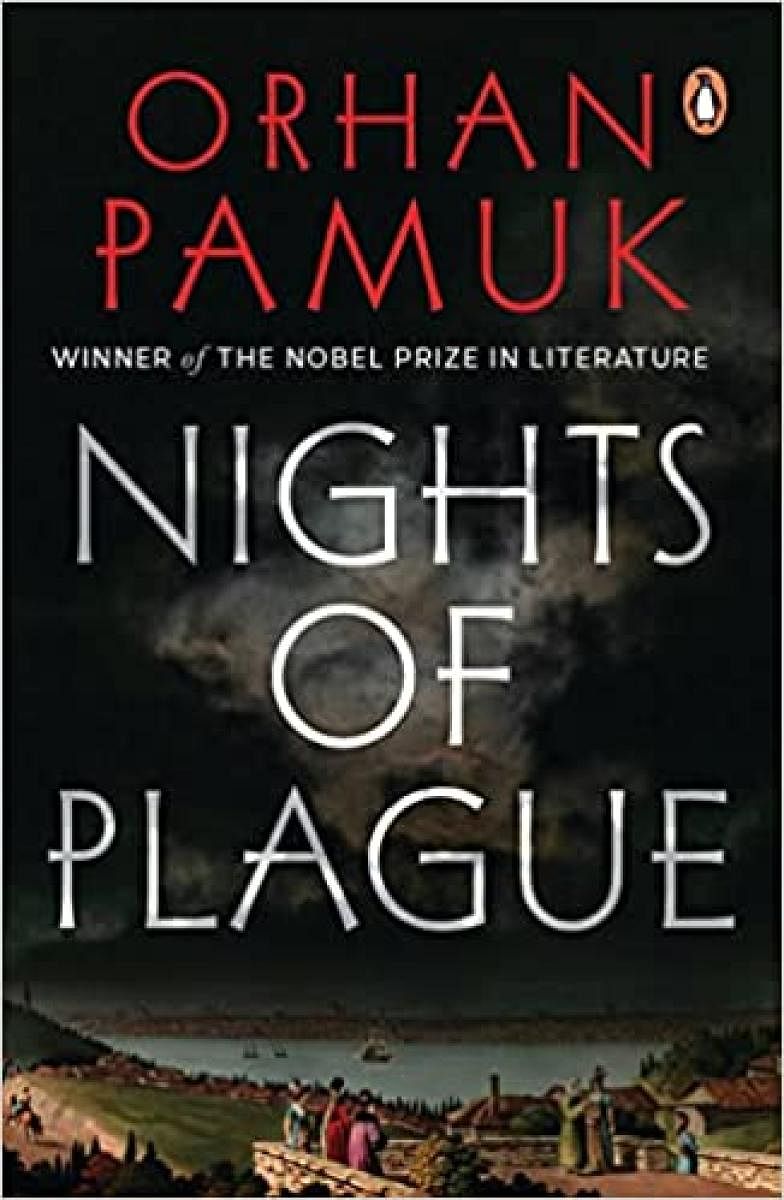
It is the year 1901. Newlyweds Princess Pakize, niece of Sultan Abdul Hamid II of the Ottoman Empire and her husband Prince Consort Nuri Bey join a delegation of scholars aboard the ship Aziziye. The Sultan intends to send them on a delegation to China. En route to their journey, they are joined by Bonkowski Pasha, the Sultan’s royal chemist and his assistant doctor Illias. The royal chemist and his assistant disembark on the fictional island of Mingheria to assess if there has been an outbreak of an epidemic. However, the royal chemist is found dead under mysterious circumstances. Later, his assistant is also found dead and it’s not the handiwork of the plague.
Princess Pakize and her Nuri Bey are asked to return to the island after the death of Bonkowski Pasha. The newlyweds are given the responsibility of cracking the mystery of how Bonkowski Pasha was found dead. In that sense, this novel is also a murder mystery.
The Sultan is initially fascinated with French crime mysteries and later with the famed detective Sherlock Holmes as well. In fact, he wants doctor and epidemiologist Nuri Bey to unravel the mystery of Bonkowski Pasha’s death through Sherlockian methods of deduction. History also says that Sultan Abdul Hamid II was known for getting many Sherlock Holmes mysteries translated into Turkish.
The island of Mingheria is on the verge of a plague outbreak that will soon destroy several lives. The plague poses several challenges, primarily the unwillingness of a large section of the population to even admit there is an epidemic looming. The plague also unravels the relationship between the island state and the Ottoman Sultanate it is part of. The Empire is on its last leg, amidst the many geopolitical tensions in both Asia and Europe. There is also the complex relationship the Ottoman Empire has with Westernisation.
Present-day parallels
It’s hard not to draw parallels to our times and how the politics of the pandemic has been playing out not just across the world but also in India. The obscuring of pandemic deaths, the social fissures and the rise of ultra-nationalism all find echoes in this novel. Indian readers will also identify with references to the plague outbreak in India in the late 1890s and early 1900s, the role of the British at that time and the tensions that came with managing the outbreak, both religious and social.
Mingheria eventually breaks away from the Ottoman State and becomes independent but not without power struggles. Power changes from one hand to another, including the Princess’ Commander, whose character is inspired by Turkey’s founder Ataturk, and the Princess herself.
Princess Pakize writes letters to her sister back in Istanbul about the struggles of Mingherians, the life there and her impressions of the city of Arkaz. The author uses the voice of the great-granddaughter of Princess Pakize to narrate the events of the time.
A city in transition
Where Pamuk revels is when he paints a picture of the city. In ‘A Strangeness in My Mind’, the hero Mevlut’s wanderings in Istanbul show a city in transition and the conflict between the old ways of life and the new. Pamuk excels in capturing a society in transition; in the ‘Nights of Plague’, Pamuk walks you through the lanes and bylanes of Arkaz, the island’s main city, showing you a society that is torn apart not just by the plague but also by the clash between modernism and tradition.
Pamuk is a master storyteller and punctuates the story with several sub-stories and nuggets of historical events.
Also, the work is replete with rich visual imagery and long descriptions, a trademark of his. For instance, “The narrow, sloping road Bonkowski Pasha had wandered into and climbed in slow, unhurried steps was flanked on one side by an old wall whose plaster had long since fallen off, and whose surface was overhung with vines, weeping willows and hackberries, and on the other by a stretch of empty land, where a group of laughing, boisterous women were hanging their laundry up to dry…”
For a reader who loves piecing together disparate parts of a puzzle, this expansive novel is a gift that keeps giving. A grouse one may have is the way Pamuk goes off the main thread of the novel, taking detour after detour and some readers might find it hard to keep up. If you quite like taking detours and making one too many discoveries along the way and getting a bit lost, ‘Nights of Plague’ is just the book for you.